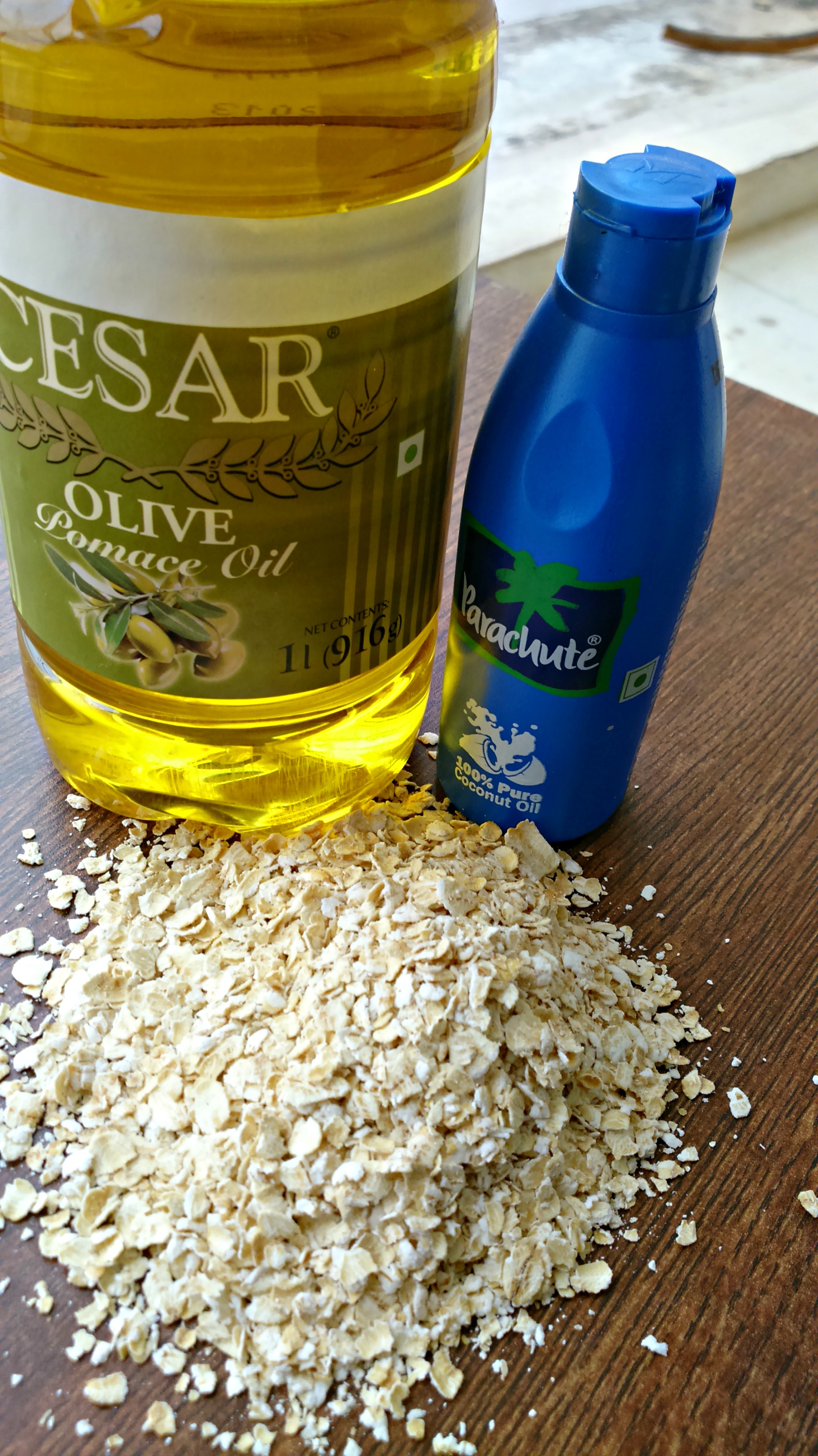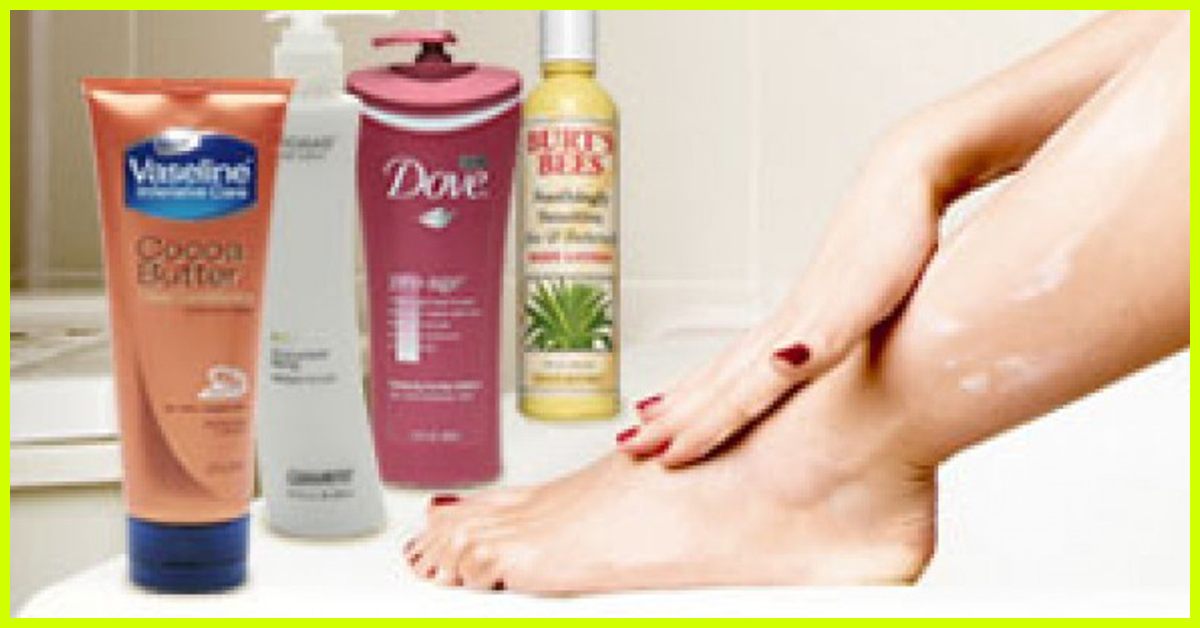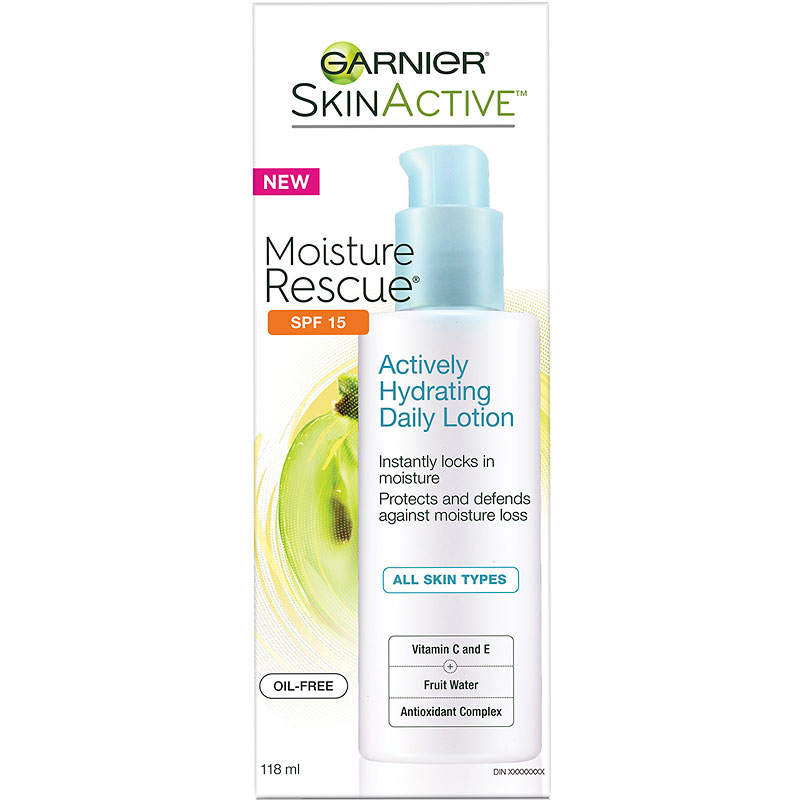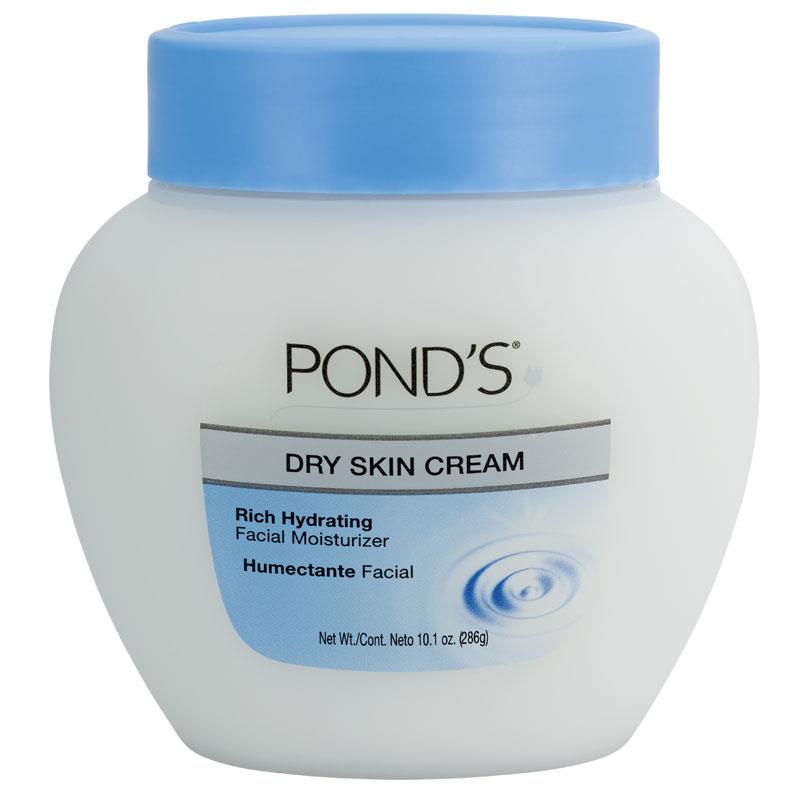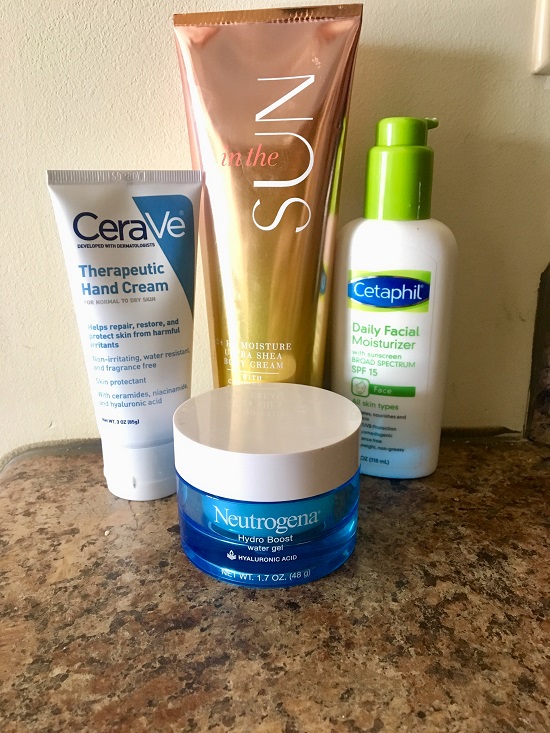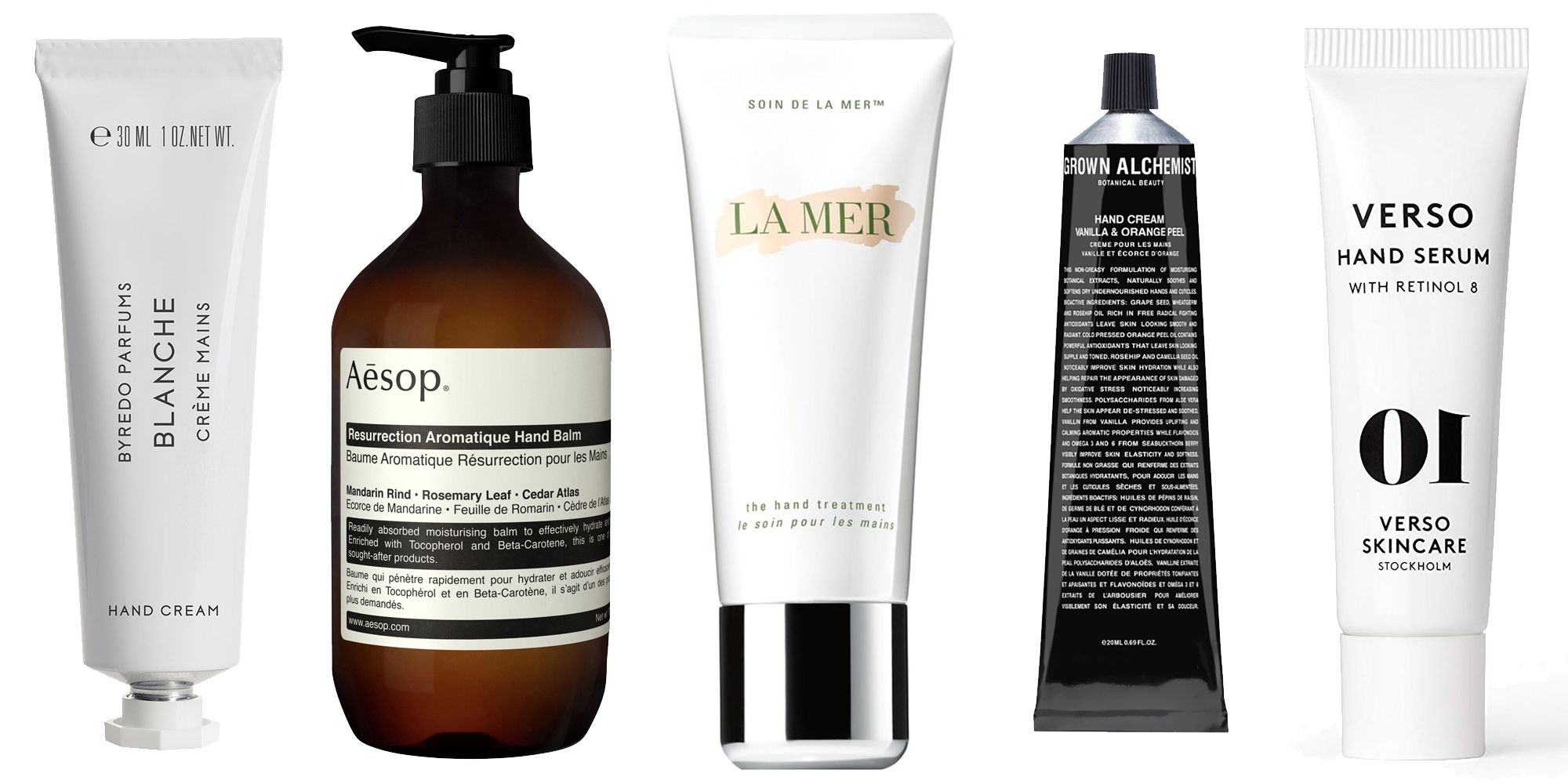According to Dr. Dhaval G. Bhanusali, a dermatologist based in New York City, I'm correct in that there is a big difference between how body oils and lotions function. As lotions are partly water based, they're typically better at penetrating deeper into the skin. And most body lotions — including my go-to — incorporate more moisturizing and skin-quenching ingredients such as hyaluronic acid and ceramides, which is why they're better suited for very dry skin types. Though body oils and body lotions have the same end goal—to moisturize your skin—they get the job done in different ways.
"When you layer an occlusive oil on top of a lotion you get better penetration of the active ingredients in the lotion producing faster and more noticeable hydrating benefits," she says. According to the dermatologists we spoke to, a big way to prevent dry skin is to make body lotion a staple in your daily routine year-round — not just in the fall and winter. But before we get into what lotions are best, there are some other best practices they told us that can help minimise scaly flare-ups. Shari Marchbein,are to avoid using stripping soaps and to take showers that last "no longer than five minutes, with warm water only." Cosmetic dermatologistDr. Shereene Idrissagrees, saying that many people tend to overdo their body-care routines, thinking that extra cleansing will somehow benefit them in the long run. Below, our eight experts share their favourite body lotions for all types of dry skin, including ones suited for soothing eczema and keratosis pilaris, and even a clean option for the sustainability conscious.
If you think that people with dry skin would benefit more from body oils, then you're absolutely wrong. This is because most body lotions are mostly formulated with water, which helps your skin retain moisture and keeps it skin soft and supple. Additionally, the lightweight texture of a body lotion sinks right into your skin, thereby hydrating it to the deepest levels. Also, body lotions tend to contain both oil and water, along with a host of other skin-loving ingredients, making it an absolute saviour for dry skin. Light skin oils that contain Apricot, Olive, Lime, Sandalwood, Rosehip, Lavender, Avocado, Argan, Patchouli and Orange extracts benefit all, including sensitive skin types.
Oils are so good for your skin because they deliver antioxidants, vitamins and essential fatty acids to skin effectively. Remember a little goes a long way making them a cost-effective way of getting supple, smooth skin. Applying oil to wet skin increase absorption, so apply right after your shower when your skin is still damp. An oil-based moisturizer is best for those with dry skin that has a damaged barrier or lacks sebum. The oil-based ingredients will help to replenish the skin's barrier function.
Many oils also contain vitamins and fatty acids that impart anti-aging benefits. For instance, rosehip seed oil contains provitamin A, mostly as beta carotene. Beta carotene has the ability to increase cell turnover and promote regeneration in the outer layers of the skin.
Over time, this can help even out skin tone and add a "glow" to the skin. So this oil-based moisturizer not only helps to replenish the skin's lipid barrier but also provides a youthful glow to skin. For oily and acne-prone skin types, common comedogenic (or pore-clogging) ingredients like coconut oil, cocoa butter, and beeswax may exacerbate acne breakouts and should be avoided when choosing a body oil. Meanwhile, those with sensitive skin should avoid body oils with synthetic fragrances and dyes, says board-certified dermatologist Zenovia Gabriel, who is based in Newport Beach, California. Additionally, skincare oils are generally "cleaner" than other moisturizing products.
Most oils used as moisturizers are naturally shelf stable for three years or more, meaning synthetic preservatives aren't necessary. These characteristics make body oils a better fit for many with skin sensitivities, and actually leave less of a "greasy residue" than many lotions and creams. This lightweight daily moisturizing lotion from CeraVe is fast-absorbing and will leave your skin feeling smooth and hydrated without the grease. This lotion for dry skin is developed by dermatologists so you can guarantee that it is safe for sensitive skin and formulated to be fragrance-free. In addition to applying this to your body, this multi-purpose moisturizer is also ideal for a dry face.
Sunflower seed oil's healing properties stand testament to how well it can remedy your dry skin. The linoleic acid in sunflower seed oil protects and moisturizes skin, improving hydration with essential fatty acids while improving the skin barrier. Its anti-inflammatory properties are renowned for helping soothe dermatitis, and the oil can also protect sensitive skin from irritation when blended into cleansers. The main benefit of using a body oil in your winter skincare routine is obviously unmatched hydration. Body oils help to strengthen your skin's barrier function to seal in moisture and prevent your skin from getting dry too quickly.
Since oils mimic the natural lipids in the skin, it helps regulate sebum production, making it an ideal choice for people with oily and acne-prone skin. Additionally, body oils also lend an envious glow to your otherwise dry and dull winter skin. Body oils, much like face oils, don't work in the same way as humectants that draw water deep into the skin to hydrate cells. Rather, body oils are made up of nourishing molecules, which are expertly crafted to soften the skin's surface and create a physical barrier to prevent water escaping. Our pick for the best water based moisturizer for face is Formulyst Super Hyaluronic Water Moisturizer.
Is Lotion Or Oil Better For Dry Skin This lightweight formula features hyaluronic acid, the key molecule involved in skin hydration. Hyaluronic acid helps boost your skin's natural nourishing powers by attracting atmospheric moisture and transforming it into intense hydration for your skin. Even though it is a water based moisturizer, Formulyst Super Hyaluronic Water Moisturizer contains jojoba oil and apricot kernel oil to balance oil production. Both of these botanical oils are non-comedogenic, so you don't have to worry about clogged pores or breakouts. The best body oils leave your skin feeling soft and looking glowy, while simultaneously moisturizing and strengthening your skin barrier.
According to board-certified dermatologist Michele Green, who is based in New York City, body oils also offer long-lasting hydration for all skin types — without any stickiness, grease, or waxy residue. "Many people might assume that using a body oil would do the opposite and cause the skin to feel greasy, but body oils tend to be fast-absorbing," she explains. Keeping your face hydrated with certain types of skincare products is a no-brainer if you deal with dry or flaky skin. However, even people with oily or acne-prone skin need their daily dose of moisture.
Instead of applying a thick or heavy cream, which may bog down oily skin types, the goal is to apply on an oil-free, non-comedogenic moisturizer that sits lightly on top of your skin. Choose something that's easy to apply and leaves no visible residue. If you are acne-prone, avoid products on your face that contain petroleum jelly, cocoa butter or coconut oil. If you skin is very oily, try using a sunscreen instead of a moisturizer. If you have mature skin, you might prevent scaly, flaky skin by using products that contain antioxidants or alpha hydroxy acid. Moisturizers often form the basis for wrinkle creams, with added retinoids, antioxidants, peptides and other ingredients.
Humectants bring moisture to our skin, which is important for healthy skin barrier function. The downside is that not all body creams contain the essential fatty acids that oils do. Low quality body lotions are often lighter than oils, and depending on the formula can evaporate from the skin more quickly. If you're on the hunt for an oil to add into your routine, Levin recommends squalene, marula, or jojoba oil, since they can help with redness and won't clog pores, given the molecule size.
These natural oils will not only condition skin, but they're also packed with essential vitamins. Gohara mentions mineral oil-based products like Vaseline are also a great choice for most skin types. Oils to avoid in skincare are argan and coconut oil, since the molecule size is larger and therefore may contribute to acne . First of all, it's essential to know which skin types react best to each moisturizer.
"Bodies that suffer from body acne, ingrown hairs, and hyperhidrosis do better with lightweight moisturizers such as lotions." If you're someone with oily skin, you don't have to miss out on the benefits of an oil. "Many people feel that oily skin types cannot use oil-based skin-care products, which is not true," says Dr. Zeichner. "Body oils are made of just that—oils—while body lotions are usually an emulsion of oils and water together," says Courtney Rubin, M.D., M.B.E., F.A.A.D, Harvard dermatologist and co-founder of Fig.1 Skincare.
"Because body oils don't contain water, the products themselves do not provide hydration. Instead, body oils seal and lock in moisture, which is why the perfect time to apply one is just after showering." Ceramides are the ingredients you didn't know your skin needed, and are the star feature of this best overall lotion for dry skin from Cetaphil. This non-greasy formula is non-comedogenic and won't irritate your skin, making it great for daily use. You can expect this clinically tested lotion to keep your skin feeling soft and free from dry patches. Everyone's skin can benefit from the inclusion of skincare products with moisturizing properties.
However, if your skin type is oily, acne-prone, or combination, then an oil-free moisturizer is going to feel much better on your skin than a heavier, oil-based formula. Also, if it's the middle of summer or you live in a humid climate, oil-free moisturizers are usually the way to go. The result is beautiful, silky skin that's balanced, radiant and healthy.
The formula uses ingredients that are high in fatty acids, antioxidants vitamins A, E, and C, and carotene to ensure deep hydration and protection from free radicals. I got a sample of this for myself, and I have to say, I really love how nicely it feels to apply and how, like Glossier's, it quickly sinks into the skin. I really notice a difference in how smooth and supple my skin feels after I use a combination of this and my moisturizer.
As I said, this is expensive — there are a lot of great affordable options out there, but if this is in your price range or if you're looking to treat yourself, this one is excellent. CeraVe Daily Moisturizing Lotion is a lightweight, oil-freemoisturizerthat helps hydrate the skin and restore its natural barrier. Formulated with 3 essential ceramides that work together to lock in skins moisture and help restore your skin's protective barrier. MVE technology encapsulates ceramides to ensure efficient delivery within the skin's barrier and slow release over time.
Supporting your protective skin barrier, long after you've finish applying. Our daily moisturizer leaves the skin feeling comfortable and is gentle on the skin as it provides 24-hour hydration. Extracted from the seeds of wild rose bushes, rose hip seed oil has seen a surge in popularity and is increasingly found in facial skincare products that tout moisturizing, anti-aging benefits. Coconut oil is easily absorbed into the skin and is known to have many health benefits, including those from vitamins E and K, as well as its antifungal and antibacterial properties.
Along with cocoa butter, coconut oil is likely to cause breakouts. "In general, coconut oil is a great option for almost everybody, except if you have oily skin and you're acne prone, I would not use it on the face," Katta says. In astudy published in the journalDermatitis, researchers found coconut oil was better than olive oil at moisturizing skin when used in a carrier. Remember to look for cold-pressed, unrefined coconut oil for your face or skin care. You'll find options like this Rooted Beauty Nourishing Body Lotion that's not only a plant-based moisturizer with antioxidants, but also available in multiple natural scents, too.
Keep reading to find more body lotions for dry skin that are best for you and your needs. The oil of the jojoba shrub, a desert plant, has been a treasured skin care ingredient for hundreds of years thanks to how it absorbs into the skin and heals dryness. Rich in skin-nourishing fatty acids, jojobacreates a protective layer on the surface of the skin that helps keep moisture in.
Because of its moisturizing ability and similarity to the natural oils on your face, it can trick the skin into producing less sebum, which helps keep dry skin from becoming excessively oily during treatment. There are so many new and exciting products in the beauty world that it's hard to keep up with all the developments. Whether it's an oil, serum, lotion, cleanser, or balm, it seems like there's a product that promises to fix any skincare concern. Body lotions and body oils have been around forever, promise to deliver moisture to your skin, and slow natural signs of aging. Lauren Siso, a licensed esthetician, and ALP owner of ELLEMES Medical Spa in Atlanta, Georgia, gave the details on what you need to know before choosing lotion or oil.
Using the two products together will allow for their hydrating ingredients to reach deeper layers of your skin, giving you a more moisturized effect overall. Both body oils and body lotions can help nourish your skin, but lotions tend to offer other benefits, too. If you have acne-prone skin you can look for lightweight lotions formulated with ingredients that won't aggravate your skin. Right after hopping out of the shower, be sure to apply a body oil to help seal in moisture. These oils are then able to absorb quickly and help repair the skin's moisture barrier, which will help your skin stay hydrated. Dr. Rubin warns against formulas with lots of botanical ingredients, essential oils, and fragrances—especially for those with sensitive skin—as they can cause contact dermatitis.
Houston agrees, adding that tea tree oil specifically should be avoided. "Tea Tree can be very drying and most skin types will become sensitive if used too often," she explains. Natural oils are made from all-natural ingredients like fruits, nuts, vegetables, etc. Some examples of natural face oils include jojoba oil, argan oil, almond oil, sunflower oil, etc.
These types of oils contain vitamins, minerals, and other nutrients that promote healthy skin. Coconut oil is one of the best natural oils you can use for your skin as it contains lauric acid, which has antibacterial properties. However, we often forget to give the largest organ on our bodies the proper attention and TLC it needs and deserves.
And with cooler temperatures on the horizon, you'll want to make sure you have an effective body lotion for dry skin on hand to combat dehydrated, rough, and scaly skin, and keep your skin healthy. Facial oils can help strike a perfect moisture balance for a parched complexion. Whereas creams often include waxes to form a layer on the skin that holds in beneficial ingredients, oils help build a resilient skin layer known as the lipid barrier as they penetrate and protect. The quick absorption of vitamins and hydrating acids in facial oils can be a saving grace when stressors like a harsh winter or travel exacerbate dryness. The right oils don't leave your skin oily but make it smoother, moisturized and more radiant. However, lotion also provides much-needed moisture by penetrating the skin with its part-water formula, according to the outlet.
"Look for lotions containing hyaluronic acid and ceramides—both enhance skin's water-retaining abilities over time," certified dermatologist, Rachel Nazarian, told the outlet. But, using the two together might be your best bet for deep, lasting hydration. Contrary to popular belief, most oils and oil-based moisturizers will not clog your pores and cause breakouts. The theory with using oils on breakout-prone skin is that they actually help balance your skin's sebum production, and help your skin's own oil flow more freely . If you have oily or acne-prone skin, the most important thing to look for when choosing an oil-based moisturizer is "non-comedogenic", which means it will not clog pores. Examples of non-comedogenic oil-based ingredients include jojoba oil, linoleic acid, argan oil, and grapeseed oil.
By now, we all know how great oils and lotions are at keeping the skin smooth and hydrated, playing a vital role in any body care routine. But with all the options on the market in both categories, you may have a hard time deciding whether a body oil or body lotion is the better option. After all, both skin care products promise soft, hydrated skin, so what's the difference, right? Well, you can skip the Google search because we're here to share some helpful information. Read on to find out if body oil is better than lotion, so you can decide which product to add to your daily skin care routine. Body butter and body lotion have many things in common when it comes to taking great care of your skin.
Both focus on replenishing your skin's moisture and protecting it from long-term damage and dryness. One of our top healthy skin tips is to moisturize your skin daily to help it look and feel amazing. When deciding between body butter and lotion, you can't really go wrong because both beauty products are great options for moisturizing your skin. Meanwhile, Jessica Houston, double-licensed esthetician and lead esthetician at BEAUTYBEEZ recommends four more ingredients to look for. Argan oil, she says, helps with dull, dry skin and is rich in antioxidants that will help fight against environmental damage.
